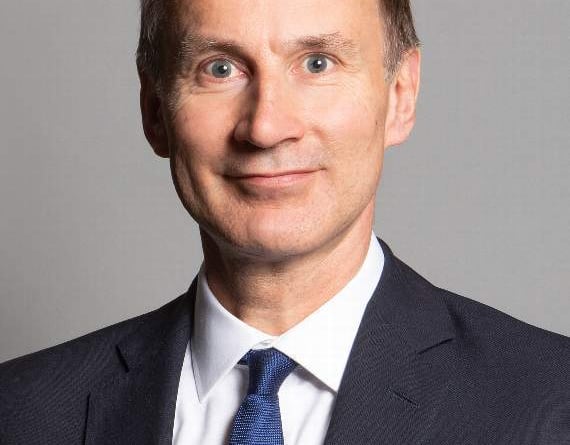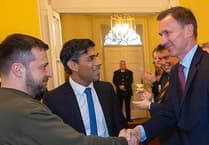I will never forget the moment I became health secretary.
I was watching the Paralympics finals in the Olympic Stadium as minister responsible for the 2012 Games. Suddenly news of an impending reshuffle came through. Like all Cabinet Ministers, I was gripped with secret terror: such events are surprisingly random and you can find yourself being moved for reasons that have absolutely nothing to do with your own performance.
Like Sajid Javid (pictured) last weekend, I had no background in health policy and was not being tipped for the role.
So when David Cameron asked me to become Health Secretary, a promotion to one of the most important roles in government, I was both surprised and delighted.
It was also the biggest challenge. I told the waiting journalists it was the biggest privilege of my life. To be responsible for 1.3 million people, the largest employer in Europe and the fifth largest in the world, is a massive undertaking.
I soon found there were two really quite distinct roles: the practical business of running a huge organisation, for which my business background was very handy. But on top of that there was something I was much less prepared for: the parliamentary mud-slinging about ‘secret plots’ to privatise the NHS which bore no relation to reality but took up a lot of my time.
It will be the same for Sajid Javid. Labour is more sensible about privatisation conspiracy theories than it was in my time – but I did not have to deal with a pandemic. Sajid is naturally decisive so will be well-suited to the immediate challenge of Covid-19 – but for the rest of his time as Health Secretary he is likely to be dealing with the backlog it has created: 40,000 fewer people starting cancer treatment, 400,000 people waiting more than a year for their operation and several million more on the overall NHS waiting list.
Every single person who has had their treatment delayed is a human being in need – so he would be right to focus on them first and foremost. But I am confident he will also use the summer to think about the longer term strategic challenges facing the NHS.
I would describe those as the three ’S’s: social care, staff and safety. Social care is top of the list because without a long term plan, a system in crisis will continue to export its most vulnerable people into our hospitals, not only often the worst place for them to be (think how confusing an A & E is for someone with dementia) but also at the expense of other people who then cannot be treated.
But with shortages in nearly every specialty, staffing too needs urgent attention. I set up five medical schools (and I still want the University of Surrey to be the next). But because it takes seven years to train a doctor, not one new doctor has yet entered the workforce as a result of those changes.
We need a long term system that makes sure governments really are training enough doctors and nurses for the next 10 or 20 years.
My third ’S’ is safety, patient safety. If we had the same maternity safety levels as Sweden, 1,000 more babies would live every year. Later this year we will see the Ockenden Report into baby deaths in Shrewsbury and Telford, and next year a similar report by Bill Kirkup into East Kent hospitals.
We need to change the blame culture in the NHS which makes it so difficult for doctors and nurses to be open and learn from mistakes. But we would be wrong to say this is an ‘NHS issue’ – in truth it is a problem in the culture of medicine around the globe.
So, I am delighted, as co-chair of the World Health Organisation’s patient safety steering group, to have persuaded it to make 2022 the year of maternal and child safety.
Lots then for Sajid Javid to get his head around, all of which he is more than capable of doing. So, I wish him well – as does the whole nation. Whatever party you support, this role just matters too much for all of us.




